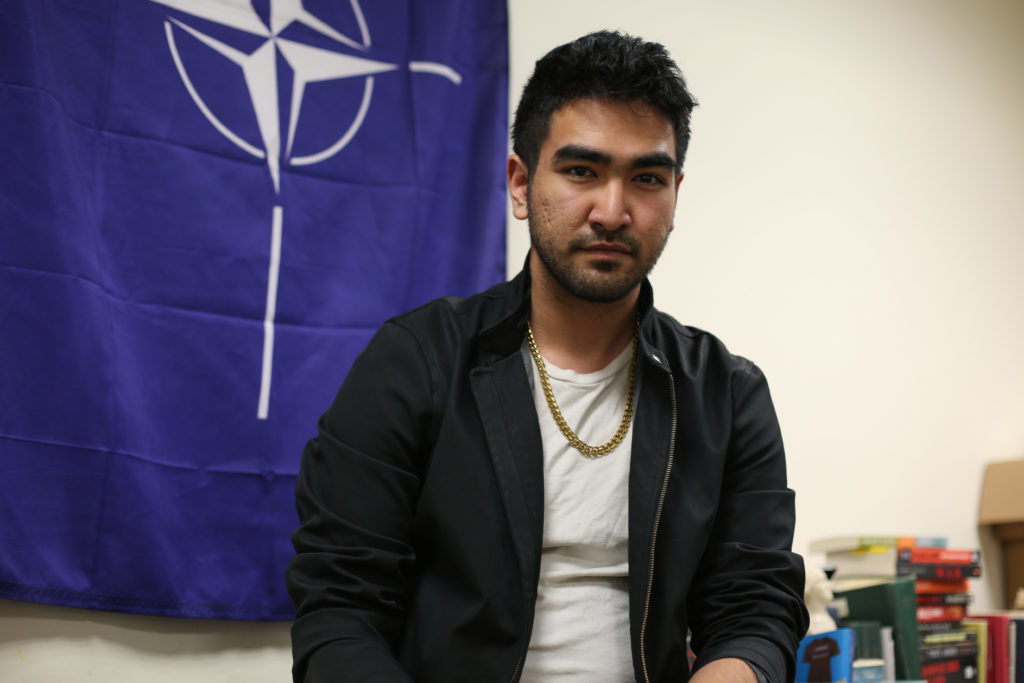President Donald Trump’s federal workforce hiring freeze has generated anxiety among students who hope to work in the government after graduation.
International affairs students said the freeze and Trump’s plan to shrink the federal work force could impact their ability to land jobs. The order could especially impact GW, a University that has a reputation for sending many of its students to government jobs in the District.
Three days after taking office, Trump signed a presidential memorandum banning federal agencies from filling vacant offices and creating new positions until the administration develops a plan to shrink the federal workforce, according to The Washington Post. The 90-day freeze exempts the military and positions dealing with national security and public safety.
Even during a hiring freeze, there are always areas that are exempt.
Leaders at the Office of Career Services said there are other options for students interested in public service careers.
The office advertises more than 12,000 internship opportunities each year through GWork, many of them in the federal government.
“Even during a hiring freeze, there are always areas that are exempt. We are in close communication with our contacts in the federal sector in order to get the latest updates and news,” Rachel Brown, the assistant provost for university career services, said in an email.
Brown said the center remains connected to a “broad and deep” network of contacts in the federal government to get updates on government hiring. She added there are several other options for students interested in public service, like non-governmental organizations, nonprofit organizations and state and local governments.
She said that she recommends that students subscribe to the office’s government-themed newsletters and attend career workshops and fairs. Nearly 20 federal agencies attended the University’s career and internship fair in the Smith Center this month, Brown said.
Husayn Hosoda, the president of foreign service fraternity Delta Phi Epsilon, said the hiring freeze and its effect on seniors’ short-term job prospects has been a major discussion topic for the group.
“Obviously there are a lot of us who wanted to go right into the government right after graduation, and there are a lot of seniors who are about to graduate who are nervous about their short-term career prospects,” he said. “A lot of our potential members were concerned about whether DPE will still be able to help them with their career prospects, and the ultimate answer is ‘yes.’”
We’ll still have opportunities to get involved in the federal government and our internships and academic experience we’re getting now is going to be more important than ever.
Hosoda said the different opportunities available in public service in the U.S. and around the world would allow members to “make the most” out of the current situation in the federal government. He said he doesn’t expect current students to permanently be shut out of government work because the administration will last only up to eight years.
“We’ll still have opportunities to get involved in the federal government and our internships and academic experience we’re getting now is going to be more important than ever,” he said.
Hugh Agnew, a history and international affairs professor, said the temporary freeze wouldn’t be a “permanent ending of all government hiring.”
“Sooner or later there will be people needed in various capacities in our foreign service, either as a Foreign Services officer or civil service employee or as contractors, or there will be a need for international relations expertise outside of government in business or the NGO sector,” he said.
Amaris Trozzo, a senior and president of the foreign service fraternity Sigma Iota Rho, said the news of the hiring freeze did shake up the community – especially for seniors looking for jobs now.
Sooner or later there will be people needed in various capacities in our foreign service.
Trozzo said she has noticed students are hesitant to look for jobs in the executive branch, forcing them to look elsewhere for employment, which she called a “silver lining” to the freeze.
“If the federal government isn’t hiring right now, what’s some similar work on the ground?” she said. “I think it’s been really interesting to see how many different organizations exist that do the work that our students are interested in doing.”
Trozzo said some fraternity members were looking at public and private partnerships through contractors and NGOs that “complete the same mission” as the government.
Raima Roy, a senior and international affairs major, said she was more interested in international development than government work, but still sought out career advising after the freeze was announced.
“My career coach did tell me that it was pretty tough and a lot of people weren’t sure what to do if they were looking to go into the State Department,” she said.





